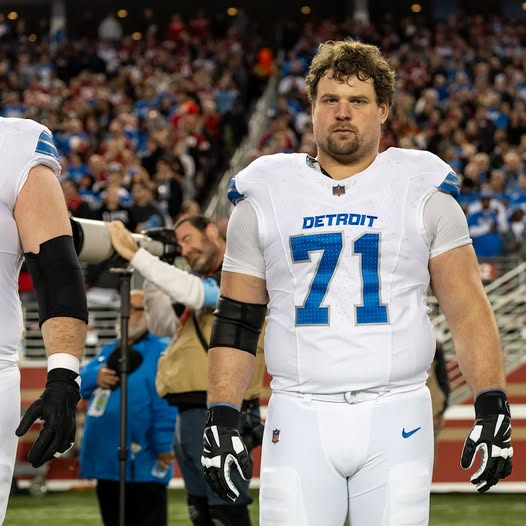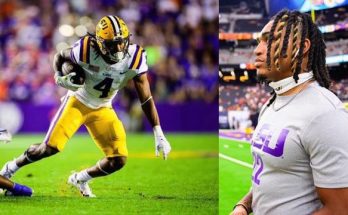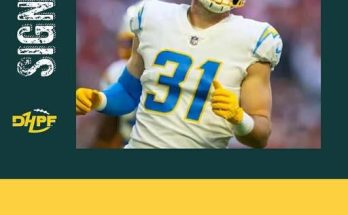etirement and Zeitler’s Exit Signal Uncertain Future for Detroit’s Once-Dominant O-Line**For years, the Detroit Lions’ offensive line was the envy of the NFL. A bruising, technically sound unit that paved the way for explosive rushing attacks and provided quarterback Jared Goff with the kind of clean pockets most signal-callers only dream of, it was the backbone of the team’s resurgence under Dan Campbell and Brad Holmes. But in the span of a single offseason, the foundation of that dominance has been shaken to its core. The retirement of All-Pro center Frank Ragnow and the departure of veteran guard Kevin Zeitler in free agency have left gaping holes in what was once the league’s most formidable front five. Now, as the Lions prepare for a 2024 season with heightened expectations, the question looms large: Is this the end of an era for Detroit’s offensive line?
To understand the magnitude of these losses, it’s essential to recognize just how dominant Detroit’s offensive line had become. Anchored by Ragnow, a cerebral and physically imposing center, the unit consistently ranked among the NFL’s best in both pass protection and run blocking. Ragnow’s ability to diagnose defenses, adjust protections, and handle elite defensive tackles one-on-one made him the heartbeat of the group. Alongside him, Zeitler brought a veteran savvy and mauler’s mentality at right guard, solidifying the interior while tackles Penei Sewell and Taylor Decker locked down the edges.
The numbers spoke for themselves. In 2023, the Lions ranked in the top five in both adjusted line yards and pressure rate allowed, a testament to their balance and cohesion. Running backs David Montgomery and Jahmyr Gibbs thrived behind gaping lanes, while Goff enjoyed one of the cleanest pockets of his career, allowing him to deliver a career resurgence. The offensive line wasn’t just good—it was the engine that made Detroit’s offense hum.
Frank Ragnow’s decision to retire at just 28 years old sent shockwaves through the organization. Though injuries had taken a toll—Ragnow had battled through toe, foot, and knee issues in recent years—his level of play never dipped. He was still playing at an All-Pro level, which makes his departure all the more devastating.
Ragnow wasn’t just a great player; he was the identity of the offensive line. His toughness set the tone—playing through pain, delivering crushing blocks, and leading by example. His football IQ was off the charts, often making pre-snap adjustments that neutralized opposing blitzes. Replacing that combination of intelligence, skill, and leadership is nearly impossible.
The Lions have options, but none are ideal. Graham Glasgow, who re-signed this offseason, could slide over to center, where he has experience. Alternatively, Detroit could turn to a rookie, but asking a first-year player to step into Ragnow’s shoes is a tall order. The drop-off, at least in the short term, seems inevitable.
If Ragnow’s retirement was a hammer blow, Zeitler’s departure in free agency was a painful follow-up. Signed last offseason to solidify the right guard spot, Zeitler delivered exactly what was expected: steady, reliable play. He wasn’t flashy, but he was a technician in pass protection and a road grader in the run game. His consistency allowed the Lions to trust the right side of the line, especially with Sewell developing into a superstar at tackle.
Now, with Zeitler gone, the Lions must find another answer at guard. Glasgow could stay at right guard if Detroit opts for a new center, but that would still leave a hole elsewhere. The team drafted Colby Sorsdal last year, and he may get a chance to compete, but banking on unproven players is risky for a team with Super Bowl aspirations.
The offensive line’s decline—or even a slight step back—could have cascading effects on the entire offense. Goff, while efficient, is not a quarterback who thrives under constant pressure. His success in Detroit has been built on timing and rhythm, and if the pocket starts collapsing more frequently, his turnovers could spike.
The running game, too, could suffer. Montgomery and Gibbs excelled because of the massive lanes created by the offensive line. If those seams tighten, the Lions’ play-action game—a staple of Ben Johnson’s scheme—loses some of its potency. Play-action only works if the run game is feared, and if defenses no longer respect Detroit’s ability to maul up front, the entire offensive ecosystem could be disrupted.
It’s not all doom and gloom. Penei Sewell is still a transcendent talent at right tackle, and Taylor Decker remains a solid blindside protector. If Glasgow stays healthy, he’s a reliable veteran who can hold down a spot. The Lions also have a strong coaching staff, with offensive line coach Hank Fraley earning praise for developing talent. Perhaps a young player like Sorsdal or a mid-round draft pick surprises and fills the void.
Additionally, the Lions’ front office has shown an ability to identify and develop offensive line talent. Holmes and Campbell understand the importance of the trenches, and they may have a plan in place to address these losses before the season begins.
Dan Campbell’s tenure in Detroit has been defined by toughness, resilience, and a commitment to controlling the line of scrimmage. Now, that identity is being tested. The 2024 season will reveal whether the Lions can sustain their success up front or if the offensive line’s decline becomes the Achilles’ heel of an otherwise loaded roster.
For a team that came within one half of the Super Bowl last season, the margin for error is slim. The NFC is loaded, and the Packers, 49ers, and Eagles aren’t waiting for Detroit to figure things out. If the offensive line regresses, it could be the difference between a deep playoff run and a disappointing step back.
The Lions’ fortress may not have fallen yet, but the walls are certainly cracked. How they repair them will determine whether this team remains a contender or becomes a cautionary tale about how quickly dominance in the trenches can fade.



